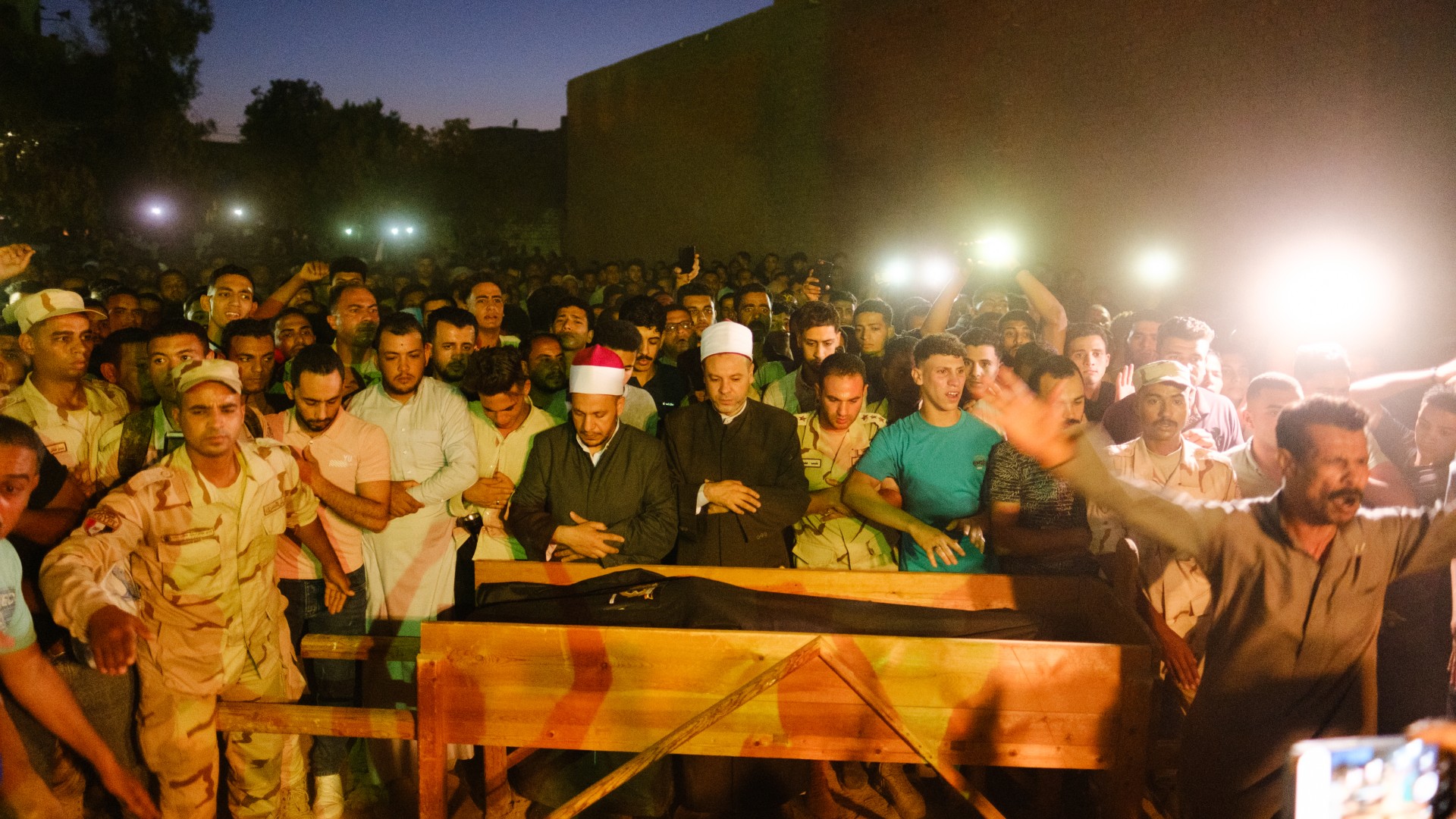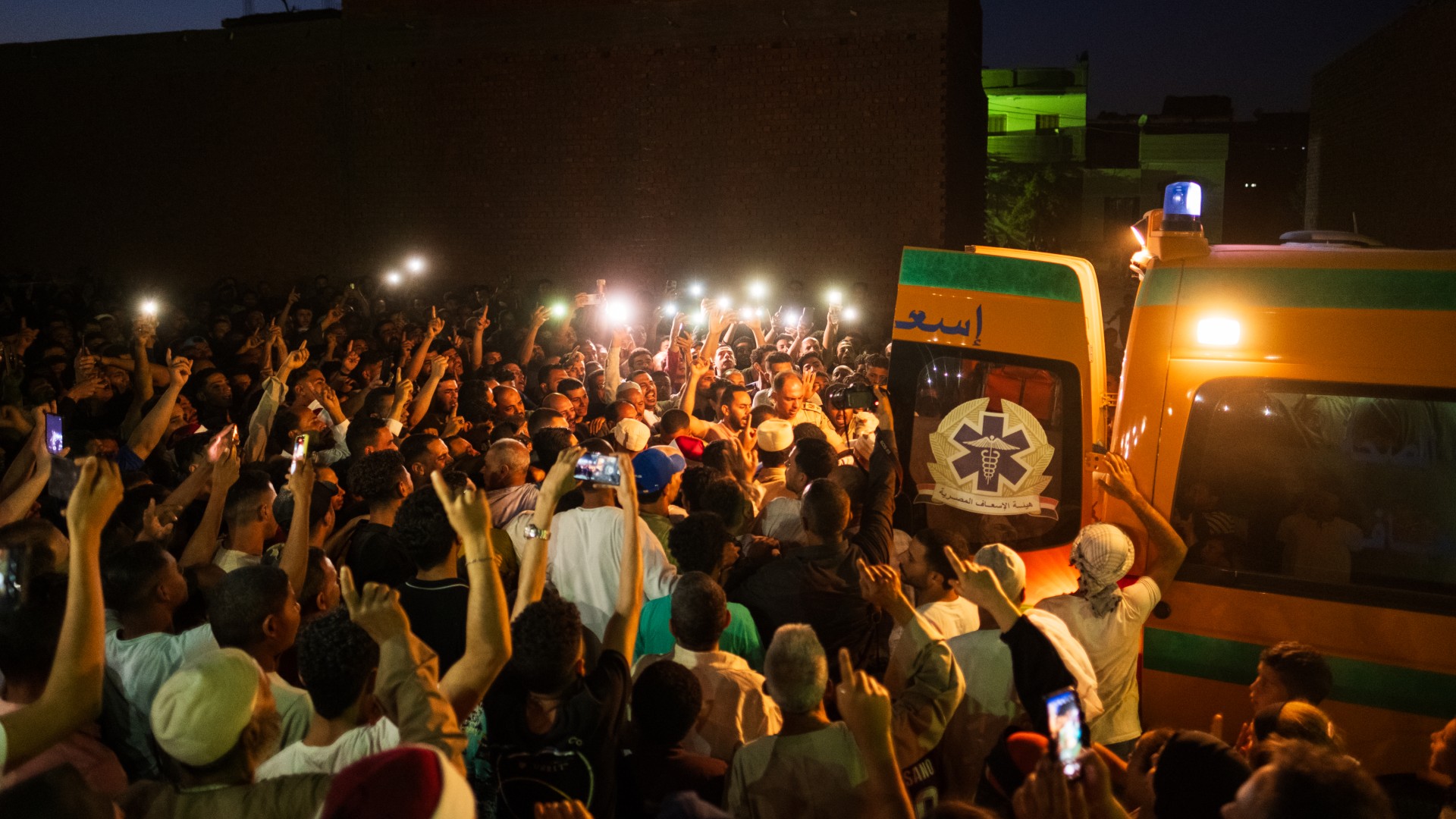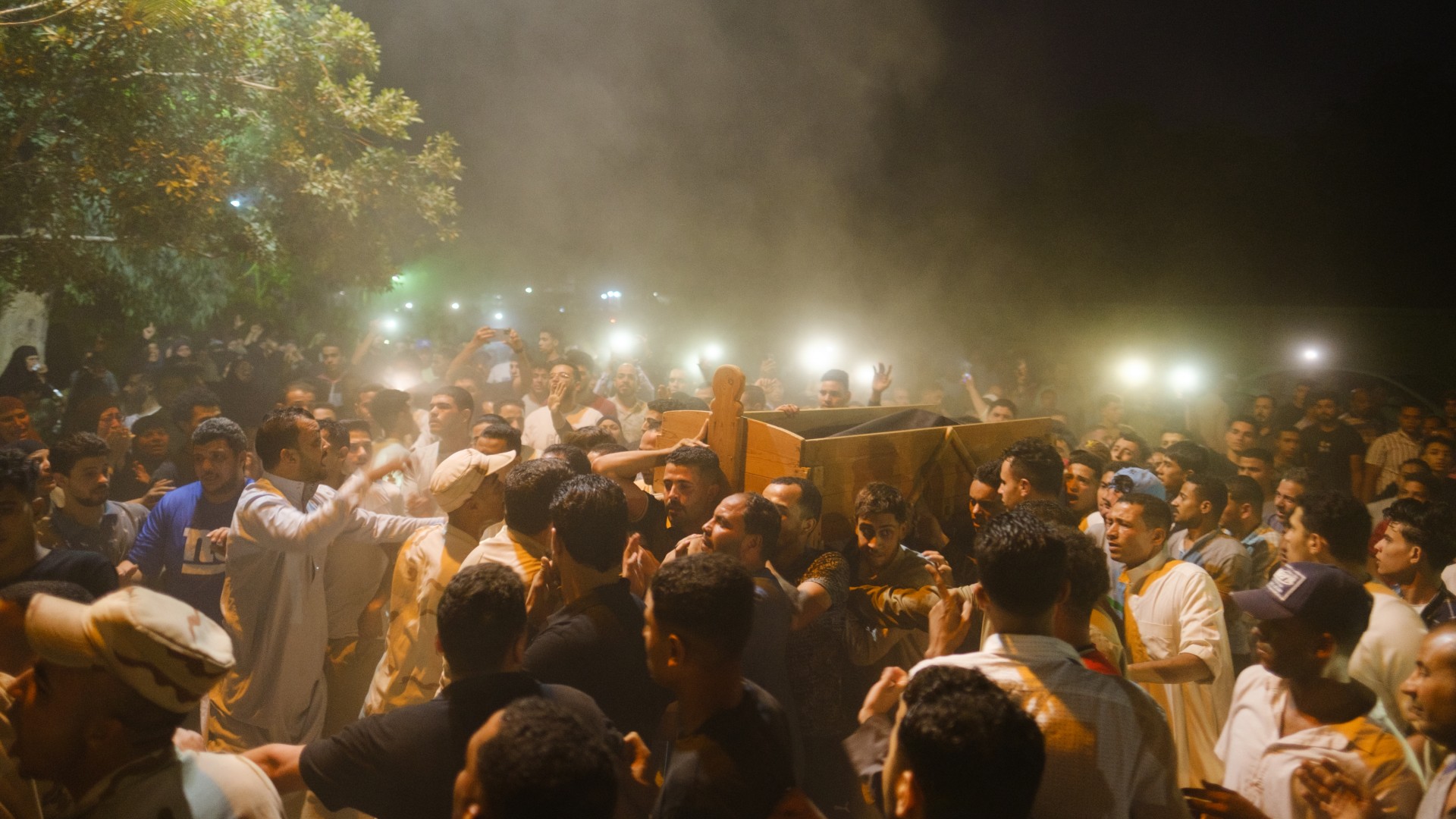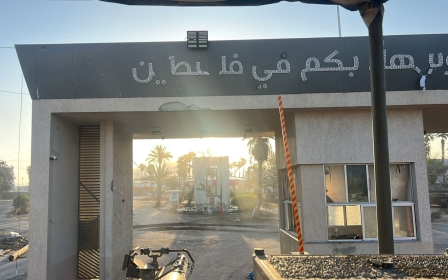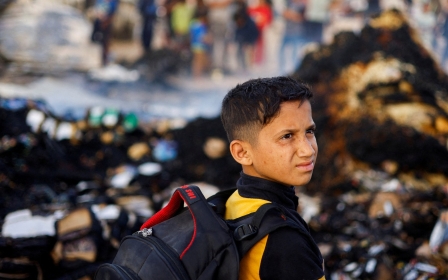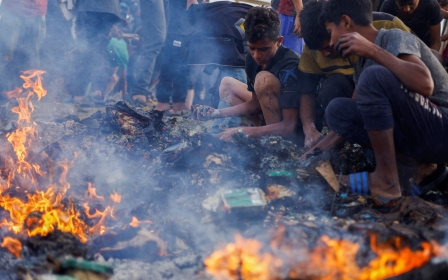In pictures: Funeral of second Egyptian soldier killed in Rafah shootout with Israeli forces
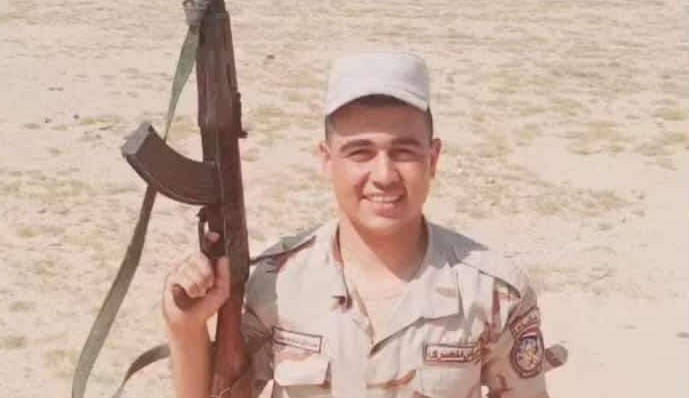
A second Egyptian soldier has died after being wounded in an exchange of fire with Israeli troops near the Rafah crossing with Egypt's Sinai on Monday, local sources told Middle East Eye.
Ibrahim Islam Abdelrazzaq, a 22-year-old infantry soldier deployed in Rafah after 7 October, was critically wounded and taken to hospital on Monday.
The first Egyptian soldier has been identified online and verified by MEE as 22-year-old Abdallah Ramadan, though the military has yet to confirm his identity.
Ramadan's funeral was held on Monday in his home village of al-Ajamiyyin, near Faiyum, 110km south of Cairo. It was attended by family and members of the local community. No senior military officers were present.
Abdelrazzaq also hails from the Faiyum governorate.
New MEE newsletter: Jerusalem Dispatch
Sign up to get the latest insights and analysis on Israel-Palestine, alongside Turkey Unpacked and other MEE newsletters
His funeral was held on Tuesday night in his village Sanhour Qibly. It was live streamed on Facebook and widely shared by Egyptian social media users.
The news about the border incident first broke on Monday in Israeli media, with reports initially censored and then later confirmed by Israel's military, which stated that "a shooting incident" took place on the Egyptian border and that it was under investigation.
Later on Monday, Egypt's army spokesperson confirmed one "element tasked with border security" was killed in a shooting and also said an investigation was underway.
No other official statements have been made about the deaths of soldiers.
Egyptian state-linked news channel, Al Qahera News, cited a security source as denying a second soldier was killed on Monday at the Rafah border.
'Egypt has warned'
Egyptian state media outlets only cited anonymous sources making vague statements about the incident.
"An official security source said that Egypt has warned of the repercussions of the Israeli operations in the Philadelphi Corridor and warns against harming its elements," Al Qahera News reported late on Monday following Israeli reports.
The 1979 peace treaty between Egypt and Israel, as well as a 2005 border agreement, limit Israel's military presence along the 100-metre wide, 14 km-long buffer zone known as the Philadelphi Corridor.
"This is what Egypt has warned against for months; the Israeli attack on the Philadelphi Corridor creates field and psychological conditions difficult to control and are expected to escalate," the security source was quoted as saying.
Daily News Egypt, an independent English-language Egyptian newspaper, cited unnamed sources as saying Egyptian soldiers had been "affected" by the Rafah massacre on Sunday, in which an Israeli bombing killed 45 Palestinians at a displacement camp.
Israel’s decision to take control of the crossing for the first time since its disengagement from Gaza in 2005 has triggered a rare diplomatic spat with Egypt, which has since refused to open its side, saying it was a Palestinian-Egyptian terminal and should remain as such.
The crossing had been the main gateway for vital aid and civilians since the beginning of the Israeli war on Gaza in October.
It was controlled by Hamas on the Palestinian side and Egypt on the Sinai side between 2007 and 7 May, when Israeli forces stormed the facility.
However, movement via the crossing was also monitored by Israel, Gaza's occupying power under international law, in coordination with Egypt.
Middle East Eye delivers independent and unrivalled coverage and analysis of the Middle East, North Africa and beyond. To learn more about republishing this content and the associated fees, please fill out this form. More about MEE can be found here.


